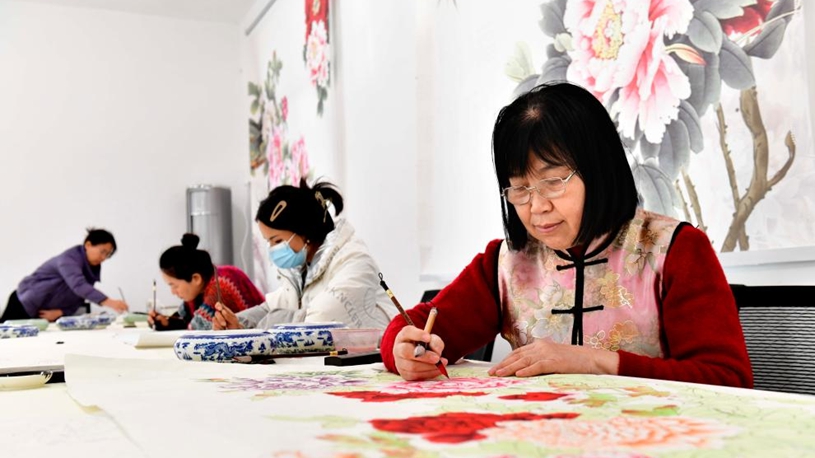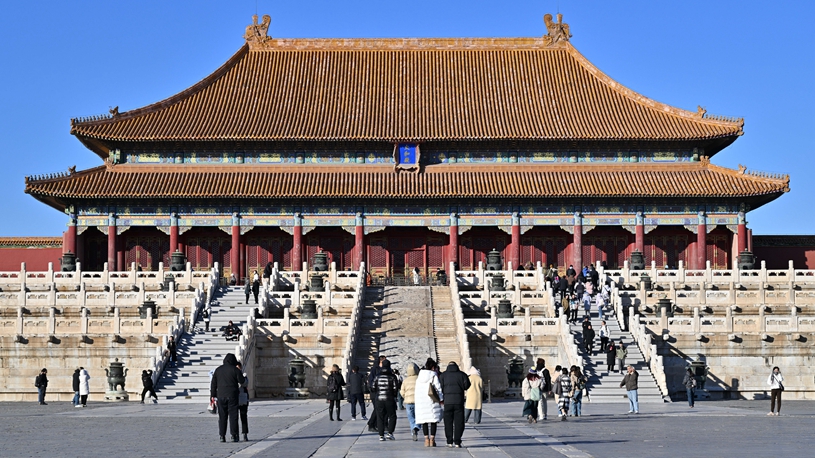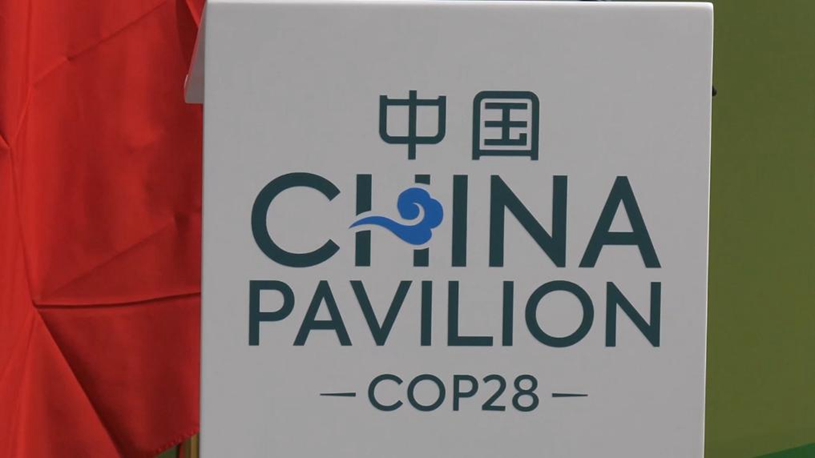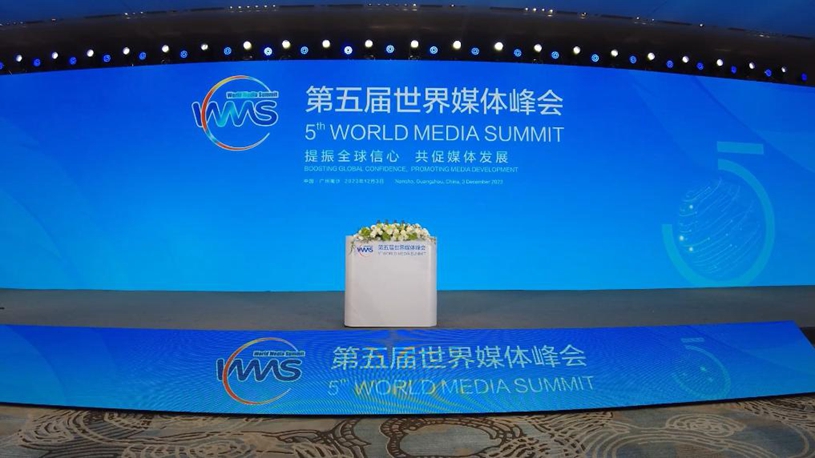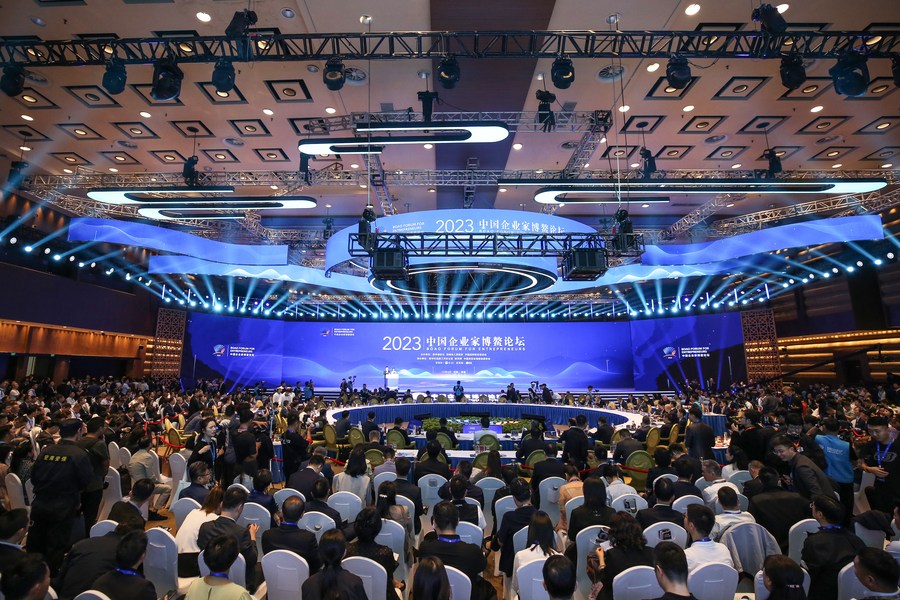
This photo taken on Dec. 4, 2023 shows the main forum of the 2023 Boao Forum for Entrepreneurs held in Boao, south China's Hainan Province. (Xinhua/Zhang Liyun)
BOAO, Hainan, Dec. 5 (Xinhua) -- Chinese products have traversed a journey from inception to prosperity in recent decades, with their popularity evolving into an unstoppable trend. They are now poised for relentless innovation to enhance their presence in the international market.
At the just-concluded 2023 Boao Forum for Entrepreneurs in Boao, a coastal town in south China's Hainan Province, Chinese entrepreneurs and experts believe technological innovation empowers Chinese brands to create distinctive products, enabling them to ascend alongside international giants and ride the waves to success.
Wu Rongzhao, chairman of Erke, a Chinese sportswear brand, attached importance to technological innovation in generating new productive forces.
"We're diving into tech advancements in product research and development, hoping to produce more top-notch sports gear on par with international standards. By this way, we've already helped Chinese runners excel on the competition stage dozens of times," said Wu.
He added that the company has collaborated with national research centers to make continuous technological innovation a driving force for its development.
Snow Lotus, a time-honored Chinese cashmere brand, also welcomes the idea of innovation.
"Given the rarity and luxury of cashmere, our focus remains on consistently strengthening our technological capabilities and the core competitiveness of our products," said Gan Xuerong, chairman of Snow Lotus. "We innovate a range of products by utilizing technology to enhance the added value of our offerings."
Gao Dekang, president of Bosideng, a major Chinese manufacturer of down jackets, said that innovation was crucial for shaping a more promising future for a category, industry, or market segment, fostering consumer recognition, and establishing genuine leadership capabilities.
The company has strategically centered its efforts on fashion and functionality innovation to promote new brands and explore novel product categories.
"Irreplaceable innovation is the true innovation and the core competitive advantage," said Gao.
With the pursuit of innovation across various dimensions, such as quality, value, and distribution, Chinese brands have increased their competitiveness and garnered global recognition.
Many of these brands are implementing a "go global" strategy, expanding into international markets to generate substantial profits and tap diverse resources.
"Venturing abroad targets primarily mainstream markets with products suitable for international reach," said Ma Enduo, founder and chairman of Amos, an innovative candy producer in China.
This enterprise has expanded its footprint to over 50 countries and regions, including key markets such as the United States, Canada, and Japan. This became a feat highlighted in a case study collection by Harvard Business Review last year.
In a parallel commitment to brand internationalization, Kweichow Moutai, a leading Chinese liquor maker, is leveraging both domestic and international markets to promote Chinese brands and culture worldwide, according to its chairman Ding Xiongjun.
Ding said the liquor maker's sales network now spans 64 countries and regions.
Meanwhile, some nascent Chinese brands like Voyah have adopted a global business strategy right from the outset.
Voyah, a Chinese luxury electric auto brand, has identified Europe as a pivotal market for its initial global endeavors. This emerging player in the new energy automotive sector has established a presence in Norway, Denmark, Finland, and Bulgaria, with dynamic initiatives underway across countries like Germany, Italy, and France.
Besides globalizing products, certain companies have effectively exported their corporate culture and rich Chinese heritage. This helps reshape global perceptions of Chinese technological innovation, boost brand visibility internationally, and foster cultural exchanges between different regions.
Lu Zhan, secretary general of Beijing Reignwood Culture Foundation dedicated to promoting cultural and educational programs, noted that the foundation developed its unique cultural brands amid China's economic growth. It has organized high-quality cultural activities through collaborations with global art influencers, acting as cultural ambassadors.
Gao Yanmin, a former Ministry of Industry and Information Technology official, expressed optimism about the current development of Chinese brands, adding that they've seen notable success at home and abroad through improved brand image and market expansion.
Gao believed that with sustained efforts and policy adjustments, Chinese brands would better address the demand for high-quality products, tackle challenges related to brand differentiation, and carve out a more prominent identity in the global market. ■


